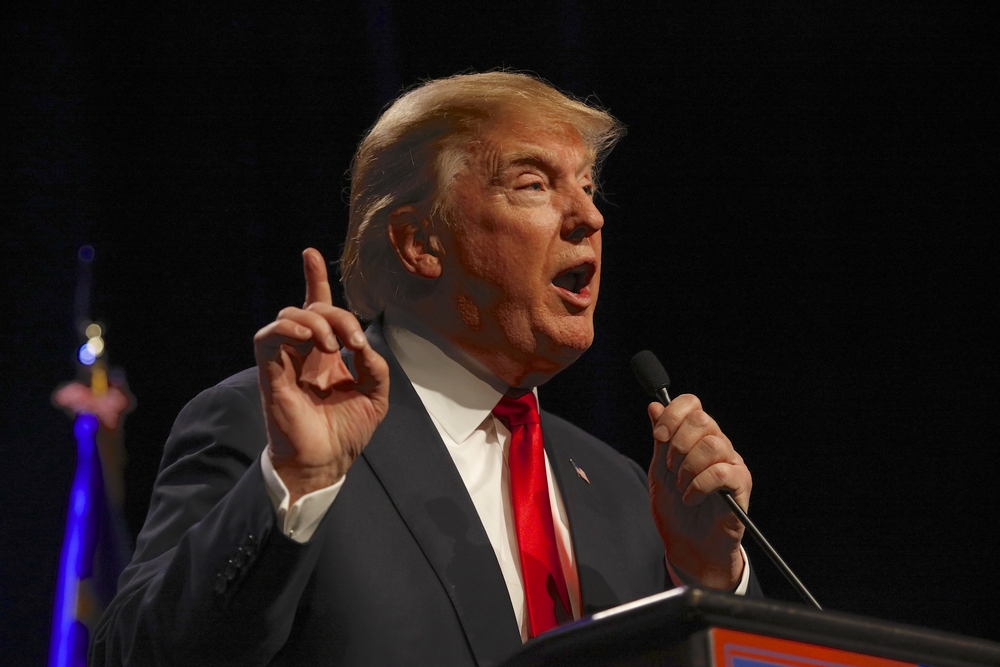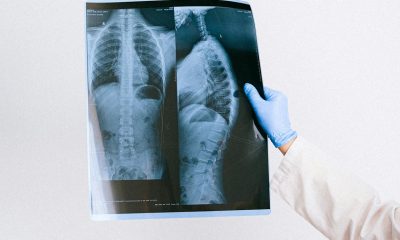Business and Economy
Facing pressure, Trump delays tariffs on some Chinese goods

But under pressure from retailers and other businesses, President Donald Trump’s trade office said it would delay until Dec. 15 the tariffs on nearly 60% of the imports that had been set to absorb the new taxes starting Sept. 1. (File Photo: Joseph Sohm / Shutterstock.com)
WASHINGTON — Responding to pressure from businesses and growing fears that a trade war is threatening the U.S. economy, the Trump administration is delaying most of the import taxes it planned to impose on Chinese goods and is dropping others altogether.
The announcement Tuesday from the Office of the U.S. Trade Representative was greeted with relief on Wall Street and by retailers who have grown fearful that the new tariffs would wreck holiday sales.
The administration says it still plans to proceed with 10% tariffs on about $300 billion in Chinese imports — extending its import taxes to just about everything China ships to the United States in a dispute over Beijing’s strong-arm trade policies.
But under pressure from retailers and other businesses, President Donald Trump’s trade office said it would delay until Dec. 15 the tariffs on nearly 60% of the imports that had been set to absorb the new taxes starting Sept. 1. Among the products that will benefit from the 3 1/2-month reprieve are such popular consumer goods as cellphones, laptops, video game consoles, some toys, computer monitors, shoes and clothing.
The administration is also removing other items from the tariff list entirely, based on what it called “health, safety, national security and other factors.”
Separately, China’s Ministry of Commerce reported that top Chinese negotiators had spoken by phone with their U.S. counterparts, Trade Representative Robert Lighthizer and Treasury Secretary Steven Mnuchin, and planned to talk again in two weeks.
The news sent the Dow Jones Industrial Average soaring more than 400 points in mid-afternoon trading. Shares of Apple, Mattel and shoe brand Steve Madden, which stand to benefit from the delayed tariffs, led the rally.
Speaking to reporters in New Jersey, Trump confirmed that he had decided to delay the tariffs, which could force retailers to raise prices, to avoid the economic pain that could result during the holiday period.
“We’re doing (it) just for Christmas season, just in case some of the tariffs could have an impact,” the president said.
Trump has repeatedly argued that his tariffs are hurting China, not American consumers. But by delaying higher tariffs on consumer goods, Trump is tacitly acknowledging that his import taxes stand to squeeze American households, too. Tariffs are taxes paid by U.S. importers, not by China, and are often passed along to U.S. businesses and consumers through higher prices.
Jay Foreman, CEO of the toy company Basic Fun, said he’s pleased that the 10% tariffs have been delayed for products like his until December. His company, based in Boca Raton, Florida, had already set prices for the holiday season and would have had to absorb the impact of the tariffs. Foreman said he is considering layoffs this fall to offset his higher costs and noted that despite Trump’s reprieve, tariffs remain a severe threat.
“We were relieved,” he said. “But does that stop the volatility and instability? No.”
Together, the news of negotiations and tariff delays provided at least a respite after weeks of heightened U.S.-China trade tensions. The relief might prove only temporary, though, if the tariffs eventually take full effect and Beijing retaliates against U.S. exports.
The Trump administration is fighting the Chinese regime over allegations that Beijing steals trade secrets, forces foreign companies to hand over technology and unfairly subsidizes its own firms. Those tactics are part of Beijing’s drive to become a world leader in such advanced technologies as artificial intelligence and electric cars.
But 12 rounds of talks have failed produce any resolution. Frustrated with the lack of progress, Trump raised the tariffs on $200 billion in Chinese imports from 10% to 25% in May and said Aug. 1 that he’d impose 10% taxes on an additional $300 billion on Sept. 1.
On Sunday, economists at Goldman Sachs downgraded their economic forecasts, citing the impending tariffs on consumer goods. And economists at Bank of America Merrill Lynch have raised their odds of a recession in the next year to roughly 33%, up from about 20%.
“We are worried,” Michelle Meyer, head of economics at Bank of America Merrill Lynch, wrote Friday. “We now have a number of early indicators starting to signal heightened risk of recession.”
Goldman said the tariffs on China have increased uncertainty for businesses, which will likely cause them to pull back on hiring and investing in new equipment or software. Trump’s tariffs on Chinese goods have also weighed down stock prices lower, which could depress spending by wealthier Americans, Goldman found.
“It’s pretty clear that the problem with (Trump’s) tariff tactics is it’s bad for the economy,” said David Dollar, a China specialist at the Brookings Institution and a former official at the World Bank and U.S. Treasury. “You try to use the weapon but then you get blowback on your own people.”
Despite the exchanges between the U.S. and Chinese negotiators, the prospects for negotiations remain dim. A substantive deal would require China to scale back its aspirations to become a tech superpower. And relations between the countries have been strained by mistrust.
The best possible outcome, Dollar said, likely would be a “mini-deal” in which China agrees to buy more American products and narrow the gaping U.S. trade deficit with China. In exchange, perhaps the United States would lift some sanctions on the Chinese telecommunications giant Huawei, which the U.S. sees as a national security risk.
So far, Trump’s tariffs have failed to get President Xi Jinping to yield to the U.S. demands.
“I don’t think we’re any closer to a deal,” said Scott Kennedy, who analyzes China’s economy at the Center for Strategic and International Studies. “I don’t think there will be any deal during the Trump administration.”
The decision to delay the tariffs “shows that the two economies are interdependent and that interdependence benefits many Americans” by providing affordable goods, Kennedy said. “It’s not so easy to penalize China or disengage.”
———
AP Retail Writer Anne D’Innocenzio and AP data journalist Larry Fenn in New York contributed to this report.





















